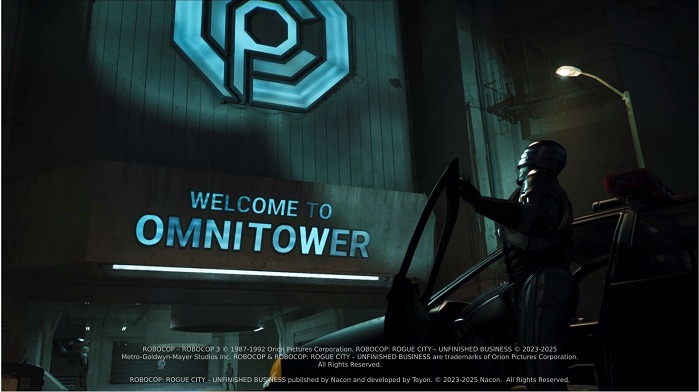The PlayStation Plus service has long been a backbone of Sony’s gaming ecosystem, offering subscribers an ever-evolving lineup of titles. But in recent months, the service seems to be leaning heavily on both nostalgia and niche appeal. With a mixture of old favorites, innovative indie hits, and polarizing horror games, it’s clear that PlayStation Plus is trying to walk a fine line between appeasing its core audience and trying to stand out in a crowded gaming market.
But the question remains: is Sony getting the balance right? Or are they missing an opportunity to deliver a broader, more engaging experience for subscribers?
Hogwarts Legacy on PS Plus: A Magical Addition or a Missed Opportunity?
The Charm of the Wizarding World, But at What Cost?
The inclusion of Hogwarts Legacy in PlayStation Plus this April was a high-profile move, and for many, it felt like an obvious win. The game, which garnered massive attention upon its release earlier in the year, has been one of the most anticipated titles for Harry Potter fans in decades. Its arrival in the PS Plus catalog made sense: it would attract new players, reignite excitement, and potentially boost subscriptions.

However, the reaction from subscribers has been less than unanimous. Many long-time PlayStation Plus users were left scratching their heads. Is adding a game that’s already been widely purchased a true value addition? For those who grabbed Hogwarts Legacy on launch day, it feels less like a gift and more like a regift — a game that no longer holds the same allure now that the hype has faded.
What’s more, Sony’s continued focus on big-budget blockbusters like this raises the question: Is PS Plus relying too heavily on known franchises and not offering enough of the surprising, innovative content it used to? It’s clear that subscribers crave fresh experiences, but offering something like Hogwarts Legacy feels like Sony is playing it safe. Sure, the wizarding world offers a magical experience, but it’s not a revolutionary one. And for a service that’s increasingly becoming a platform for discovery, this might not be enough.
Blue Prince: Indie Games Are the Secret Weapon PlayStation Plus Needs
Innovation Over Familiarity
While Hogwarts Legacy highlights Sony’s focus on big names, Blue Prince, an indie puzzle game launched on PlayStation Plus this April, points to a more promising direction for the service. Unlike the mainstream hits that flood other subscription services, Blue Prince represents something entirely different: an innovative, story-driven puzzle experience that combines challenging gameplay with an engaging narrative.

The success of Blue Prince could be the beginning of a new era for PlayStation Plus, one that prioritizes day-one indie releases. Indie games have increasingly become a treasure trove of creativity, offering unique mechanics and narratives that AAA titles often overlook. Games like Stray and Tchia have shown that indie titles can elevate PlayStation Plus offerings, and Blue Prince is proving the point further.
What’s compelling here is Sony’s potential to champion indie developers in ways that can’t be easily matched by competitors like Xbox Game Pass, which tends to prioritize larger, more mainstream titles. By offering a consistent stream of indie gems from day one, PlayStation Plus could become the go-to place for players looking for fresh, innovative experiences that they can’t find elsewhere. This approach would not only diversify the service’s library but also align perfectly with a growing demand for more unique, boundary-pushing games.
The Texas Chain Saw Massacre: A Bloody Bold Move or a Risky Misstep?
Genre Appeal vs. Mass Audience
As if Hogwarts Legacy and Blue Prince weren’t enough, PlayStation Plus also included The Texas Chain Saw Massacre in April’s lineup — a decidedly niche choice that’s sure to split opinions. The game offers asymmetrical horror gameplay, where players either take on the role of survivors or the infamous Leatherface, making it a strong appeal for horror fans and multiplayer enthusiasts.
But here’s the catch: this type of niche appeal comes with risks. Horror games, particularly those based on specific licenses, can be a tough sell to a broader audience. The Texas Chain Saw Massacre might be a dream come true for horror fans, but it’s less likely to draw in the more casual or mainstream gamer. This could be a barrier for PlayStation Plus, which is often seen as a service for a wide range of tastes, from casual players to hardcore fans.
The question we must ask is whether this kind of genre-focused content belongs in a service that has broader appeal. While it’s great to see PlayStation Plus diversifying its offerings, there’s a fine line between appealing to a dedicated fanbase and isolating a majority of subscribers. Horror fans might rejoice at the inclusion of such a cult classic, but for others, this could feel like a missed opportunity for a broader, more inclusive experience.
PlayStation Plus: Striking the Balance Between Nostalgia, Innovation, and Niche Appeal
The Tightrope Walk of Subscriber Satisfaction
The recent lineup of games offered by PlayStation Plus reflects an interesting trend: Sony is betting big on both nostalgia and niche content. From the mainstream draw of Hogwarts Legacy to the niche terror of The Texas Chain Saw Massacre, Sony seems to be experimenting with a service that’s equally home to blockbuster franchises as it is to indie darlings and horror oddities.
But here’s the catch: Sony has to strike a delicate balance. If they focus too much on big titles like Hogwarts Legacy, they risk alienating subscribers who want more variety. If they lean too heavily into niche genres like horror, they might lose out on the broader audience that just wants fun, accessible games. And while indie titles like Blue Prince can provide exciting new content, it’s not enough on its own to support the entire service.
PlayStation Plus has the potential to lead the way in offering a diverse, vibrant library of games. But to truly succeed, it must continue to deliver not only familiar favorites but also groundbreaking indie experiences and niche gems that can captivate the most passionate gaming communities. It’s all about balance — and Sony seems to be learning that lesson with every new addition to the service.
Final Thoughts
In the end, PlayStation Plus is evolving, and while some choices may feel like safe bets, others are taking risks that could redefine what we expect from subscription-based services. By continuing to innovate and experiment with both mainstream hits and indie wonders, Sony has the chance to make PS Plus not just a service, but a cornerstone of the modern gaming experience.
Whether they succeed depends on how they continue to mix nostalgia, novelty, and niche appeal — and how well they can adapt to an ever-changing gaming landscape.
